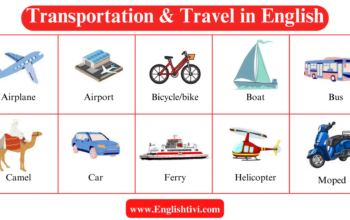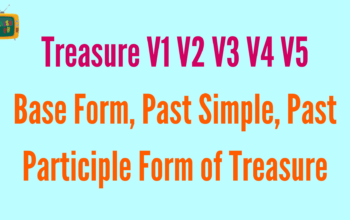Cause V1 V2 V3 V4 V5 is one of the verbs that are used very commonly in English tests as well as in everyday communication. Also, because it’s an irregular verb, cause doesn’t follow the regular rule. The verb “cause” has five different forms: base form, past simple, past participle form, present perfect, and present perfect participle. So what is cause‘s past? How do conjugate verbs with cause verbs?
⏩ Sign Up to Get Bonus
Let’s find out with English tivi in the article below.
See more at: Verbs
Cause of Definition and Meaning
“Cause” has been used as a verb meaning “to produce (a result) by means of some cause”.
V1 V2 V3 V4 V5 Form of Cause
| Base Form (V1) | cause |
| Past Form (V2) | caused |
| Past Participle Form (V3) | caused |
| s / es/ es (V4) | causes |
| ‘ing’ form (V5) | causing |
Cause of Past Simple V2
The verb Cause is also employed in its V2 form as “caused”’. It is used to indicate the past tense in sentences.
Cause of Past Participle V3
The V3 form is identical to the V2 form. The V3 form is “caused”. Caused is used in the past or present perfect tense.
+ In the present perfect tense, we use the word V1 as ‘have + caused‘ or ‘has + caused'.
- I, you, and we are used as ‘have + caused‘.
- ‘has + caused' is used for he, she, and it.
+ If you need to use the past perfect tense, use ‘had + caused‘ regardless of the subject.
You might also like: ALL the English Grammar Basics You Need
Conjugation of Cause V1 V2 V3 V4 V5
| Conjugation table: Cause | |||
| Number | Singular | ||
| Present Simple of cause | I | You | She/He/It |
| cause | cause | causes | |
| Plural | |||
| We | You | They | |
| cause | cause | cause | |
| Present Continuous of cause | I | You | She/He/It |
| am causing | are causing | is causing | |
| Plural | |||
| We | You | They | |
| are causing | are causing | are causing | |
| Present Perfect of cause | I | You | She/He/It |
| have caused | have caused | has caused | |
| Plural | |||
| We | You | They | |
| have caused | have caused | have caused | |
| Present Perfect Continuous of cause | I | You | She/He/It |
| have been causing | have been causing | has been causing | |
| Plural | |||
| We | You | They | |
| have been causing | have been causing | have been causing | |
| Past Simple of cause | I | You | She/He/It |
| caused | caused | caused | |
| Plural | |||
| We | You | They | |
| caused | caused | caused | |
| Past Continuous of cause | I | You | She/He/It |
| was causing | were causing | was causing | |
| Plural | |||
| We | You | They | |
| were causing | were causing | were causing | |
| Past Perfect of cause | I | You | She/He/It |
| had caused | had caused | had caused | |
| Plural | |||
| We | You | They | |
| had caused | had caused | had caused | |
| Past Perfect Continuous of cause | I | You | She/He/It |
| had been causing | had been causing | had been causing | |
| Plural | |||
| We | You | They | |
| had been causing | had been causing | had been causing | |
| Future Simple of cause | I | You | She/He/It |
| will/shall cause | will/shall cause | will/shall cause | |
| Plural | |||
| We | You | They | |
| will/shall cause | will/shall cause | will/shall cause | |
| Future Continuous of cause | I | You | She/He/It |
| will/shall be causing | will/shall be causing | will/shall be causing | |
| Plural | |||
| We | You | They | |
| will/shall be causing | will/shall be causing | will/shall be causing | |
| Future Perfect of cause | I | You | She/He/It |
| will/shall have caused | will/shall have caused | will/shall have caused | |
| Plural | |||
| We | You | They | |
| will/shall have caused | will/shall have caused | will/shall have caused | |
| Future Perfect Continuous of cause | I | You | She/He/It |
| will/shall have been causing | will/shall have been causing | will/shall have been causing | |
| Plural | |||
| We | You | They | |
| will/shall have been causing | will/shall have been causing | will/shall have been causing | |
| Conditional Present of cause | I | You | She/He/It |
| would cause | would cause | would cause | |
| Plural | |||
| We | You | They | |
| would cause | would cause | would cause | |
| Conditional Perfect of cause | I | You | She/He/It |
| would have caused | would have caused | would have caused | |
| Plural | |||
| We | You | They | |
| would have caused | would have caused | would have caused | |
| Conditional Present Continuous of cause | I | You | She/He/It |
| would be causing | would be causing | would be causing | |
| Plural | |||
| We | You | They | |
| would be causing | would be causing | would be causing | |
| Conditional Perfect Continuous of cause | I | You | She/He/It |
| would have been causing | would have been causing | would have been causing | |
| Plural | |||
| We | You | They | |
| would have been causing | would have been causing | would have been causing | |
| Present Subjunctive of cause | I | You | She/He/It |
| cause | cause | cause | |
| Plural | |||
| We | You | They | |
| cause | cause | cause | |
| Past Subjunctive of cause | I | You | She/He/It |
| caused | caused | caused | |
| Plural | |||
| We | You | They | |
| caused | caused | caused | |
| Past Perfect Subjunctive of cause | I | You | She/He/It |
| had caused | had caused | had caused | |
| Plural | |||
| We | You | They | |
| had caused | had caused | had caused | |
| Imperative of cause | I | You | She/He/It |
| cause | |||
| Plural | |||
| We | You | They | |
| Let’s cause | cause | ||
See more at: Vocabulary
Example Sentences with Cause V1 V2 V3 V4 V5
In this section, we will learn about cause sentence examples:
- Hot weather causes the plants in the garden to die.
- He‘s always causing trouble.
- I will cause trouble if I drink alcohol.
- Jack has caused a lot of unhappiness to his wife.
- He caused the death of his parents.
Synonym Words For Cause
Synonym of cause word list. Here are a variety of words whose meaning is nearly the synonym of cause:
- affect
- induce
- trigger
- precipitate
- provoke
- compel
- effect
- elicit
- enact
- evoke
- motivate
- muster
- occasion
- render
- advance
Opposite Words For Cause
The antonym of cause word list. Here are some words that have nearly the opposite meaning as cause:
- discourage
- deter
- obstruct
- prevent
- foil
- hinder
- impede
- stifle
- block
- close
- delay
- inhibit
- keep
You might also like: Best List of Irregular Verbs in English
Some Frequently Asked Questions About Cause (Verb)
What is the V1 V2 V3 V4 V5 of cause?
The past tense of cause is caused. The third-person singular simple present indicative form of cause is causes. The present participle of cause is causing. The past participle of cause is caused.
| Base Form (V1) | cause |
| Past Form (V2) | caused |
| Past Participle Form (V3) | caused |
| s / es/ es (V4) | causes |
| ‘ing’ form (V5) | causing |
What is the V2 and V3 form of cause?
+ The V2 and V3 form of cause is “caused“.
What is the sentence of cause?
What is the past tense V2 of cause?
+ The past tense of cause is “caused“.
What is the past participle V3 of cause?
+ The past participle of cause is “caused“.
What is the present participle V5 of cause?
+ The present participle of cause is “causing“.
Conclusion
Let’s learn with English TV the structure of the verb “Cause V1 V2 V3 V4 V5“: Base Form, Past Simple, Present Continuous and Present Continuous and Present Continuous and Present Continuous forms. We wish you all the best of luck.
You should subscribe to the English TV YouTube channel if you want to learn more about the English language and improve your proficiency.





